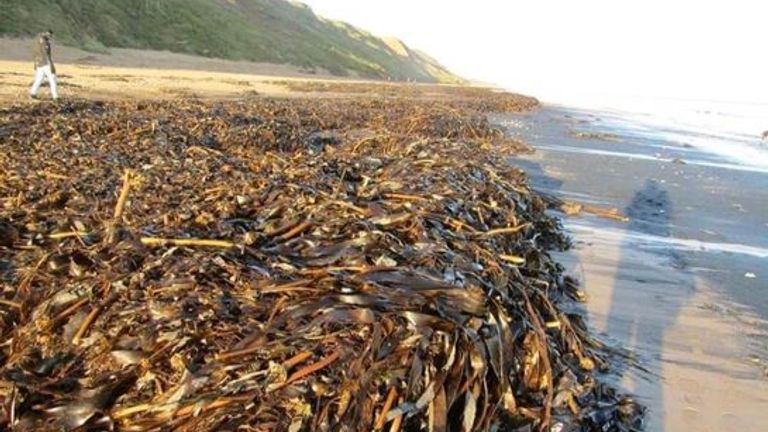Dredging to expand Teesside Harbor is “extremely unlikely” to have killed thousands of crabs and other marine life, an independent panel has concluded.
Between October and December 2021, mass die-offs along the coastline from Hartlepool to Whitby have resulted in large patches of crab washing ashore.
It has resulted in tragic sights of massive numbers of dead and dying marine life on the beach.
Fishing crews also warned the incident would be “catastrophic” for their livelihoods.
Academic research suggests the deaths were caused by the industrial pollutant pyridine, possibly from dredging of the Tees estuary to maintain the port’s traffic lanes.
But an independent panel of academia, industry experts and chaired by Gideon Henderson, chief scientific adviser to the Department for Environment, Food and Rural Affairs (Defra), found it was “very unlikely” that pyridine or another contaminant was the cause.
Researchers from the Environment Agency and York University detected no pyridine in the seawater and the toxic chemical found in the River Tees was “significantly lower” than what killed the crabs, the team said.
Instead, they concluded that a pathogen emerging in UK waters – an underlying disease or parasite – was “likely” responsible for the crabs’ deaths.
“While there is no direct evidence of a new pathogen, it could explain the main observations, including the duration and mortality of the 70-kilometre coastline, unusual convulsions of dying crabs, and the fact that the majority of the deaths were crabs rather than Not other species.
No matter where you get your podcasts, subscribe to ClimateCast with Tom Heap
“It is also possible that a combination of factors contributed to the unusual death rate, rather than one of the factors considered by the panel.”
An earlier investigation into the incident, led by Defra, pointed to an algal bloom as the likely cause.
However, the new report also found this “unlikely”.
Dead and dying marine life has been washing up on beaches around Teesside for almost a year, after it died in autumn 2021, it is claimed. Official documents and eyewitness reports seen by Sky News.
“Deaths happen all the time,” said Dr Gary Caldwell, a marine biologist at Newcastle University.
He said the incident had led to “near extinction” of crabs and lobsters in the area around the mouth of the Tees Estuary.
